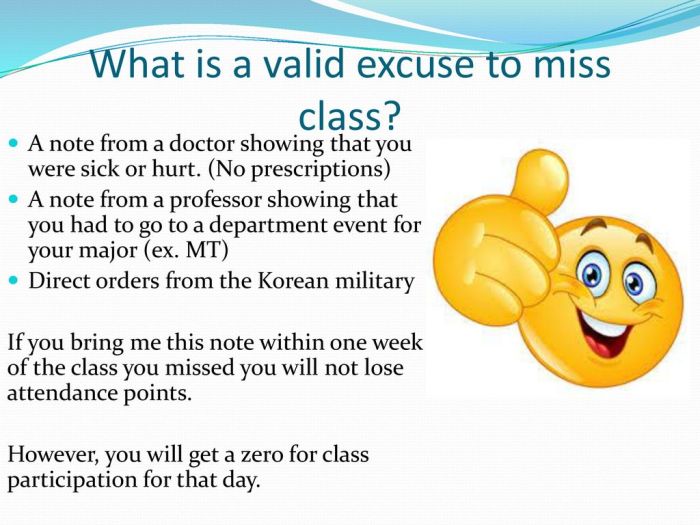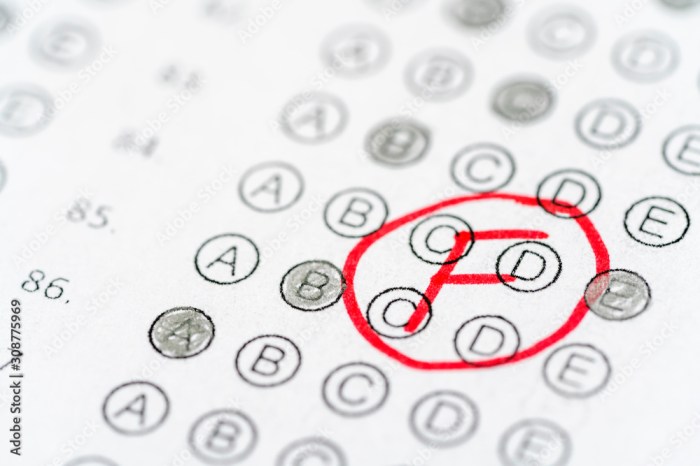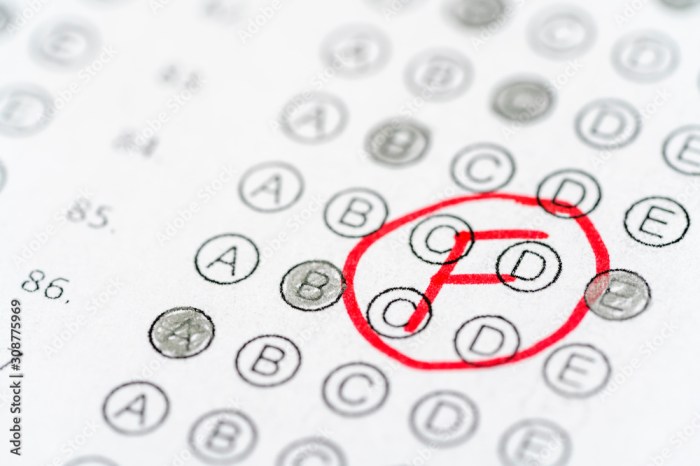Cope if You Fail Your First Year at University: Navigating the emotional rollercoaster of academic setbacks is a common experience for many students. This blog post delves into understanding the feelings, assessing the situation, developing a plan, seeking support, building resilience, and considering future options. It’s a guide to help you navigate this potentially challenging time and emerge stronger on the other side.
The first year of university can be incredibly overwhelming. Academics, social life, and adjusting to independence can all contribute to feelings of anxiety and stress. This post breaks down the complexities of academic failure in the first year, providing actionable steps to address the issue and pave the way for future success.
Understanding the Experience
Failing your first year of university can be a deeply distressing experience, impacting both your academic and emotional well-being. The pressure to succeed, coupled with the transition to independent learning and a new environment, can create a perfect storm of anxiety and self-doubt. This initial period often marks a significant turning point, shaping your approach to learning and your future trajectory.The emotional toll of academic failure during this critical juncture can be substantial.
Students may experience a range of negative emotions, from intense sadness and disappointment to feelings of anger and frustration. This initial shock can be followed by a prolonged period of introspection and self-reflection, questioning one’s capabilities and future prospects. The fear of not meeting expectations, both personal and societal, can linger and significantly impact self-esteem.
Emotional Impact of Failure
The initial shock of failing a first-year course can trigger a cascade of negative emotions. Students may feel overwhelmed by feelings of inadequacy, worthlessness, and shame. These feelings can be intensified by societal pressures to succeed academically, leading to feelings of isolation and despair. Students might also experience a sense of loss, as if a dream or a path has been abruptly terminated.
Common Feelings and Anxieties
Common anxieties associated with academic setbacks during the first year include fear of failure, a sense of inadequacy, and a fear of disappointing loved ones. Students may also experience anxiety about the future, questioning their abilities and prospects. These anxieties can manifest as sleep disturbances, difficulty concentrating, and even physical symptoms like headaches or stomach aches. Moreover, feelings of isolation and loneliness can emerge as students grapple with their setbacks in a new environment.
Long-Term Effects of Unmanaged Failure
Failure in the first year, if not addressed effectively, can have long-term consequences. Students may develop a negative self-image, impacting their future academic and career choices. A lack of confidence can hinder their ability to take on challenges and opportunities, potentially leading to a cycle of self-sabotage. The emotional scars of failure can extend beyond academics, affecting personal relationships and overall well-being.
Long-term impacts might include difficulty forming healthy relationships, reduced motivation, and a tendency to avoid challenges.
Recognizing and Acknowledging Negative Emotions
Identifying and acknowledging the negative emotions associated with failure is the first step towards overcoming them. It’s crucial to allow yourself to feel the sadness, anger, or fear without judgment. Journaling, talking to trusted friends or family, or seeking professional help can be valuable tools in processing these emotions. Recognize that these feelings are a natural response to a challenging situation, and that they are temporary.
Failing your first year of university can feel devastating, but it’s totally normal! It’s a huge adjustment, and sometimes things just don’t click right away. This can be a great opportunity for growth, though. To help you cope with the initial disappointment, checking out the new “melo de melo ep” melo de melo ep might be a great way to refocus and find some inspiration.
Ultimately, remember that you’re not alone and there are resources to help you navigate these challenges. Keep your chin up!
Self-Compassion and Acceptance
Self-compassion and acceptance are crucial in navigating the feelings associated with academic setbacks. Treat yourself with the same kindness and understanding you would offer a friend facing similar struggles. Remind yourself that everyone makes mistakes and that setbacks are a part of the learning process. Remember that you are capable of growth and recovery, and that your worth is not defined by your academic performance.
Acceptance involves acknowledging the situation without judgment and focusing on finding solutions.
Coping Mechanisms
| Emotional Response | Coping Mechanism |
|---|---|
| Sadness | Allow yourself to grieve the loss of expectations. Engage in activities that bring you comfort, such as spending time in nature, listening to music, or pursuing hobbies. |
| Anger | Identify the source of your anger. Express your feelings in a healthy way, such as through exercise, writing, or talking to a therapist. Avoid directing anger at yourself or others. |
| Fear | Challenge your fears. Break down overwhelming tasks into smaller, manageable steps. Focus on your strengths and past successes. Consider seeking support from a counselor or academic advisor. |
| Anxiety | Practice relaxation techniques like deep breathing or meditation. Establish a consistent sleep schedule and prioritize self-care activities. Seek support from a counselor or therapist if needed. |
Assessing the Situation

Navigating the first year of university can be challenging, and academic setbacks are unfortunately a common experience. Understandingwhy* you might be struggling is crucial for effective recovery and future success. This section delves into the various factors contributing to academic struggles, the importance of self-reflection, and practical steps for identifying areas needing improvement.Failing a first year can stem from a multitude of factors, some within your control, others outside it.
It’s vital to acknowledge these contributing elements and analyze them objectively to develop a targeted plan for improvement. Proactive self-assessment is key to overcoming obstacles and charting a course towards academic success.
Reasons for First-Year Academic Struggles
Various factors can contribute to a student’s first-year academic struggles. These include, but are not limited to, insufficient preparation, adjustment challenges, and unexpected personal circumstances.
- Insufficient Preparation: A lack of adequate preparation for university-level work can significantly impact performance. This may include not fully understanding the expectations of university courses, not familiarizing oneself with the learning environment, or not developing effective study strategies. Students who did not adequately prepare for the rigors of university-level work often find themselves struggling to keep up with the demands.
- Adjustment Challenges: The transition from high school to university is a significant change. Students might face challenges adjusting to the increased independence, different learning styles, or the broader social environment of university life. Navigating the complexities of university life, including course schedules, campus resources, and social dynamics, can prove difficult for some.
- Unexpected Personal Circumstances: Unforeseen personal issues, such as health problems, family emergencies, or financial difficulties, can significantly impact academic performance. These circumstances can create stress and distraction, making it challenging to focus on studies.
Importance of Self-Reflection
A thorough self-reflection process is essential in understanding the underlying causes of academic difficulties. This involves honestly evaluating your strengths and weaknesses, identifying potential areas for improvement, and developing a personalized plan of action.
- Recognizing Patterns: Identifying patterns in your performance, such as consistently struggling in certain subjects or experiencing difficulty with specific learning styles, can provide valuable insights into your learning preferences and challenges.
- Analyzing Study Habits: Assessing your study habits, including time management techniques, study environment, and learning strategies, can reveal areas for improvement in optimizing your academic performance.
- Acknowledging External Influences: Recognizing the impact of external factors, such as stress levels, social pressures, or other life events, can help you prioritize your well-being and develop strategies for managing these influences effectively.
Identifying Academic Weaknesses
Identifying specific academic weaknesses is crucial for targeted improvement. This involves analyzing past performance, seeking feedback from professors or tutors, and understanding your learning style.
- Reviewing Past Performance: Examining previous assignments, tests, and quizzes can highlight areas where you consistently struggle. Understanding the reasons behind these difficulties is vital.
- Seeking Feedback: Actively seeking feedback from professors or tutors about your work can provide valuable insights into areas needing improvement. This feedback can be crucial in understanding where your learning gaps lie.
- Understanding Learning Style: Recognizing your preferred learning style (visual, auditory, kinesthetic) can help you adapt your study strategies to maximize your understanding and retention of information. For example, visual learners may benefit from diagrams and charts, while kinesthetic learners might benefit from hands-on activities.
External vs. Internal Factors
| Factor | External | Internal |
|---|---|---|
| Study Environment | Noisy surroundings, lack of resources | Procrastination, lack of focus |
| Learning Style | Course material not suited to learning preference | Failure to adapt study methods |
| Time Management | Unrealistic deadlines, lack of time management tools | Poor planning, inability to prioritize |
| Personal Circumstances | Health issues, family emergencies | Lack of motivation, negative self-talk |
Time Management, Study Habits, and Academic Support
Effective time management, consistent study habits, and utilizing available academic support systems are crucial for academic success. Proactive planning and consistent effort are key components for optimizing your academic performance.
- Time Management: Developing a structured schedule that balances academic demands with personal responsibilities can significantly improve time management skills.
- Study Habits: Establishing consistent study habits, such as regular study sessions, creating a dedicated study space, and employing active recall techniques, are essential.
- Academic Support Systems: Leveraging academic support systems, such as tutoring services, writing centers, and professor office hours, can significantly enhance your understanding and academic performance.
Learning Styles
Different learning styles can influence academic performance. Understanding your learning style can help you tailor your study strategies for optimal results.
- Visual Learners: Visual learners thrive on visual aids, diagrams, and charts. They often benefit from using flashcards, mind maps, and visual organizers.
- Auditory Learners: Auditory learners prefer listening to lectures, discussions, and recordings. They may benefit from audio recordings of lectures or using study groups for discussions.
- Kinesthetic Learners: Kinesthetic learners learn best through hands-on activities, experiments, and simulations. They often benefit from practical applications, labs, and group projects.
Developing a Plan: Cope If You Fail Your First Year At University
Navigating the academic challenges of your first year can feel overwhelming. However, proactive planning and a structured approach can significantly improve your chances of success. This section Artikels actionable strategies for tackling academic hurdles, building a robust study plan, and effectively utilizing university resources.A crucial element in overcoming academic challenges is the development of a personalized plan. This involves understanding your strengths and weaknesses, identifying potential obstacles, and creating a roadmap to address them.
Failing your first year at uni can feel pretty rough, but it’s totally manageable. Just remember, you’re not alone in this, and there are tons of resources to help you bounce back. Plus, did you hear the news? The xx and Sampha are dropping a split 12″ record! the xx and sampha to release split 12 That’s pretty cool, right?
Anyway, getting through this initial hurdle is all about taking things one step at a time, focusing on your strengths, and not being afraid to ask for help. You’ve got this!
This proactive approach empowers you to take control of your academic journey, fostering a sense of agency and reducing feelings of anxiety.
Actionable Strategies for Overcoming Academic Challenges
A multifaceted approach to overcoming academic challenges is essential. This involves identifying specific areas needing improvement, seeking support when needed, and maintaining a positive mindset. Recognizing your strengths and weaknesses allows for targeted interventions and a more personalized approach. For instance, if you struggle with time management, develop a schedule that accounts for dedicated study time.
Creating a Realistic Study Plan for the Next Academic Year
Creating a realistic study plan is a crucial step in academic success. It’s not a one-time event but an ongoing process of adjustment and refinement. Start by analyzing your current commitments, including classes, extracurricular activities, and personal responsibilities. Next, break down each course’s workload into smaller, manageable tasks. This approach reduces the feeling of being overwhelmed and allows for more focused effort.
For example, instead of aiming to read an entire chapter in one sitting, divide it into smaller, more achievable segments. Scheduling specific times for studying each subject can improve focus and consistency.
Utilizing University Resources Effectively
University resources are invaluable tools for academic success. Tutoring services, academic advisors, and writing centers can provide targeted support and guidance. Tutoring can help you grasp complex concepts and improve your understanding of specific subjects. Academic advisors can provide personalized advice on course selection, time management, and academic planning. Utilize these resources to your advantage; they are designed to support your success.
Setting Achievable Goals and Breaking Them Down
Setting achievable goals is paramount for maintaining motivation and preventing burnout. These goals should be specific, measurable, achievable, relevant, and time-bound (SMART goals). Breaking down large tasks into smaller, more manageable steps makes them less daunting and more attainable. For instance, instead of aiming to complete a large research paper overnight, break it down into smaller tasks such as outlining, researching, writing, and editing.
This systematic approach will help you avoid procrastination and maintain momentum.
Managing Stress and Anxiety During the Academic Year
Stress and anxiety are common experiences during the academic year. Implementing effective stress management techniques is crucial for maintaining well-being and academic performance. These techniques include prioritizing sleep, engaging in regular physical activity, practicing relaxation techniques such as deep breathing or meditation, and maintaining a healthy diet. These proactive steps can help you navigate academic pressures effectively.
Practical Tips for Improving Time Management and Productivity
Effective time management is essential for academic success. It’s about optimizing your schedule and allocating time effectively for different tasks.
- Prioritize tasks: Identify the most important tasks and tackle them first. Use techniques like the Eisenhower Matrix (urgent/important) to categorize tasks.
- Create a daily schedule: Allocate specific time slots for studying, attending classes, and other activities. Be realistic and avoid over-scheduling.
- Break down large tasks: Divide large assignments into smaller, more manageable parts to make them less daunting.
- Use a planner or calendar: Keep track of deadlines, appointments, and study sessions.
- Minimize distractions: Find a quiet study space and turn off notifications to enhance focus.
- Take regular breaks: Short breaks can boost concentration and prevent burnout.
- Review your progress: Regularly evaluate your study plan and adjust it as needed to stay on track.
Seeking Support
Navigating the first year of university can be overwhelming. Academic pressures, social adjustments, and personal challenges can feel isolating. Recognizing that you’re not alone and actively seeking support is crucial for academic success and overall well-being. This section will explore the various avenues available to you, empowering you to build a strong support system.Seeking help isn’t a sign of weakness; it’s a sign of strength and a proactive approach to managing the challenges ahead.
It’s a vital step in ensuring a positive and productive university experience.
Feeling a bit deflated after your first year at uni? It’s totally normal! Sometimes, a little creative distraction can help. Try building a DIY humidor – it’s surprisingly therapeutic, and you can find great tutorials online, like this one to help you make a DIY humidor Make a DIY Humidor. Focusing on a project like that can take your mind off the pressure and help you refocus on the next steps for your academic journey.
Plus, you’ll have a cool new accessory for your collection! Don’t get discouraged – learning to cope with setbacks is a vital part of navigating university life.
Value of Academic Support, Cope if You Fail Your First Year at University
Professors, advisors, and mentors are invaluable resources. They possess expertise and experience to guide you through academic hurdles. They can offer insights into course material, suggest study strategies, and connect you with relevant resources. Open communication with these figures can help you clarify doubts, identify areas needing improvement, and develop a personalized learning plan. A proactive approach with professors can help you receive timely feedback, which is often crucial for success in university studies.
Importance of Open Communication
Maintaining open communication with family and friends is essential. Sharing your experiences, both positive and challenging, allows for emotional support and understanding. They can provide a much-needed perspective and offer encouragement during difficult times. This open communication can strengthen relationships and create a supportive network beyond the university environment.
Accessing Mental Health Support
Recognizing the importance of mental well-being is paramount. University campuses often offer comprehensive mental health services, including counseling, therapy, and support groups. These services provide confidential spaces for discussing anxieties, stress, and any mental health concerns. Utilizing these resources can lead to improved emotional well-being and a more balanced approach to university life. Mental health is just as important as academic performance, and seeking help when needed is a strength, not a weakness.
Building a Peer Support Network
Building a support network of peers who understand the challenges of university life is highly beneficial. Joining clubs, attending events, or simply engaging in conversations with classmates can foster a sense of community and belonging. Sharing experiences, offering encouragement, and providing mutual support can make the transition smoother and less isolating. A strong peer network can create a space for encouragement and a safe environment to discuss concerns.
Effective Communication Strategies
Effective communication with university staff is key to receiving the support you need. Clearly articulating your concerns, providing specific examples, and actively listening to responses are crucial elements. Prepare your thoughts before approaching a professor or advisor, and be prepared to ask clarifying questions. This demonstrates respect for their time and ensures your message is understood. For instance, clearly outlining the specific issues you’re facing allows the university staff to provide appropriate assistance and guidance.
Campus Support Resources
| Type of Support | Description | Contact Information |
|---|---|---|
| Academic Advising | Guidance on course selection, academic planning, and career paths. | [Insert Department/Office contact information here] |
| Counseling Services | Confidential support for emotional and mental well-being. | [Insert Counseling Services contact information here] |
| Student Support Groups | Opportunities to connect with peers facing similar challenges. | [Insert relevant club/group contact information here] |
| Disability Services | Support for students with disabilities to ensure equal access to education. | [Insert Disability Services contact information here] |
Building Resilience
Navigating the first year of university can be challenging. From academic pressures to social adjustments, setbacks are inevitable. However, developing resilience—the ability to bounce back from adversity—is crucial for a successful and fulfilling experience. This involves understanding how to view setbacks as learning opportunities, maintaining a positive mindset, and actively seeking support when needed. By cultivating resilience, you equip yourself with the tools to not just survive, but thrive during this critical period.Resilience is not a fixed trait; it’s a skill that can be developed and strengthened over time.
It’s about developing a growth mindset, recognizing that challenges are opportunities for growth, and finding ways to adapt and overcome obstacles. It’s about understanding that setbacks are a normal part of the process and learning how to use them as stepping stones to success.
Developing a Growth Mindset
A growth mindset emphasizes the belief that abilities and intelligence can be developed through dedication and hard work. This contrasts with a fixed mindset, which assumes that abilities are static and unchangeable. Cultivating a growth mindset is essential for resilience because it allows you to view challenges as opportunities to learn and grow, rather than as insurmountable obstacles.
Embrace the idea that effort and learning are key to achieving goals.
Learning from Mistakes
Mistakes are inevitable during the learning process. The key is to approach them with a constructive attitude. Analyze what went wrong, identify the underlying causes, and learn from the experience. Don’t dwell on the negative aspects of the mistake; instead, focus on the lessons learned and how you can apply them to future endeavors. By viewing mistakes as valuable feedback, you can refine your approach and improve your performance.
Consider keeping a journal to record your experiences, noting what you learned from each situation, and how you can approach similar scenarios in the future.
Maintaining a Positive Attitude
Maintaining a positive attitude, even during difficult times, is crucial for resilience. This involves actively focusing on the positive aspects of your experiences and actively reframing negative thoughts. Practicing gratitude and focusing on your strengths can significantly boost your overall well-being and resilience. Surround yourself with supportive people who encourage your growth and provide positive reinforcement.
Reframing Negative Thoughts
Negative thoughts can be detrimental to your overall well-being and ability to cope with challenges. Reframing these thoughts involves actively identifying and challenging negative thought patterns. Replace negative self-talk with positive affirmations. For example, instead of thinking “I’m not good enough,” try “I am capable and I will improve with effort.” Recognize that these thoughts are just thoughts, and you have the power to choose how you respond to them.
Celebrating Small Victories
Acknowledge and celebrate your progress, no matter how small. Recognizing your achievements, both big and small, reinforces positive feelings and motivates you to continue striving for your goals. This can range from completing a difficult assignment to overcoming a personal challenge. These celebrations reinforce your ability to overcome obstacles and build your resilience.
Inspirational Quotes
“The difference between ordinary and extraordinary is that little extra.”
Jimmy Johnson
“The only way to do great work is to love what you do.”
Steve Jobs
“The future belongs to those who believe in the beauty of their dreams.”
Eleanor Roosevelt
Future Considerations
Navigating the initial year of university can be a rollercoaster, filled with both exhilarating highs and challenging lows. Beyond the immediate hurdles of adjusting to academic rigor and social life, the future looms large. Understanding your options and developing a clear path forward is crucial for sustained success and fulfillment. This section delves into the vital considerations for shaping your future trajectory after your first year.Choosing the right path, whether continuing in your chosen field or exploring alternatives, is a significant decision.
This decision shouldn’t be taken lightly, and a careful assessment of your experiences, interests, and capabilities is paramount.
Choosing the Right Course of Action
Deciding whether to continue in your current program or explore alternative paths depends on various factors. Consider your academic performance, your passion for the subject matter, and your overall well-being. If you’re struggling academically, a change of course might be beneficial, even if it means taking a step back. Conversely, if you are thriving academically and enthusiastic about your field, continuing may be the ideal choice.
Career Exploration and Planning
Career exploration is an ongoing process, not a one-time event. It’s essential to understand the career paths associated with your chosen field of study. Researching different roles, responsibilities, and required skill sets will provide a clearer picture of potential future endeavors. This involves actively seeking information about career options, attending career fairs, and connecting with professionals in your field of interest.
A well-structured career plan can serve as a roadmap, guiding you towards your aspirations.
The Value of Networking and Building Connections
Building connections with professionals in your field is invaluable. Networking events, informational interviews, and online platforms can help you discover new opportunities and gain insights into different career paths. Building relationships with professionals can open doors to mentorship, internships, and future employment opportunities. Connecting with individuals in your desired field of work can provide valuable insights into the practical application of your knowledge and skills.
Adapting to Unexpected Life Circumstances and Maintaining Purpose
Life throws curveballs. Unexpected circumstances, such as personal challenges or shifts in career goals, are inevitable. Developing resilience is key to navigating these unforeseen obstacles. Maintain a sense of purpose by focusing on your values, interests, and long-term goals. Adaptability is crucial for maintaining direction in the face of life’s twists and turns.
By maintaining a clear sense of purpose, you can better navigate life’s uncertainties.
Comparing Career Paths
| Skill Set | Potential Career Paths | Description |
|---|---|---|
| Strong analytical and problem-solving skills, proficiency in data analysis | Data Scientist, Business Analyst, Financial Analyst | These roles involve using data to solve problems, identify trends, and make informed decisions. |
| Excellent communication and interpersonal skills, ability to lead and motivate | Project Manager, Sales Representative, Marketing Manager | These roles require strong communication skills to interact with clients and colleagues, manage projects, and motivate teams. |
| Creative thinking, strong design sense, technical skills | Graphic Designer, Web Developer, UX/UI Designer | These roles require creativity, problem-solving, and technical proficiency in designing and developing products. |
| Strong writing and research skills, detail-oriented | Journalist, Content Writer, Editor | These roles involve researching, writing, and editing content for various platforms. |
Ending Remarks

Ultimately, failing your first year of university isn’t the end of the world. It’s a valuable learning experience. By understanding your emotions, assessing the situation, creating a plan, seeking support, building resilience, and considering your future, you can overcome obstacles and thrive in your university journey. Remember, you’re not alone, and help is available.







